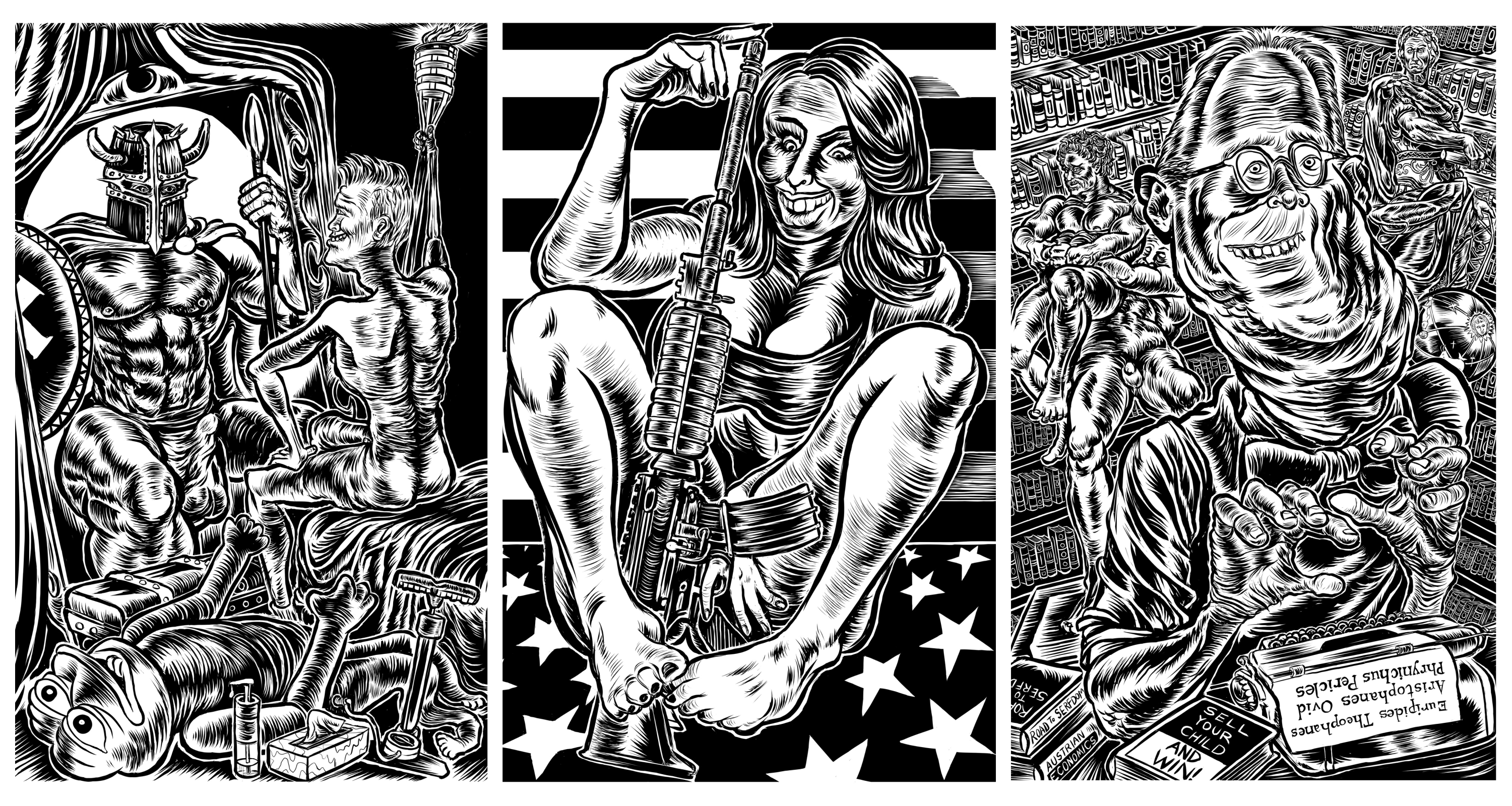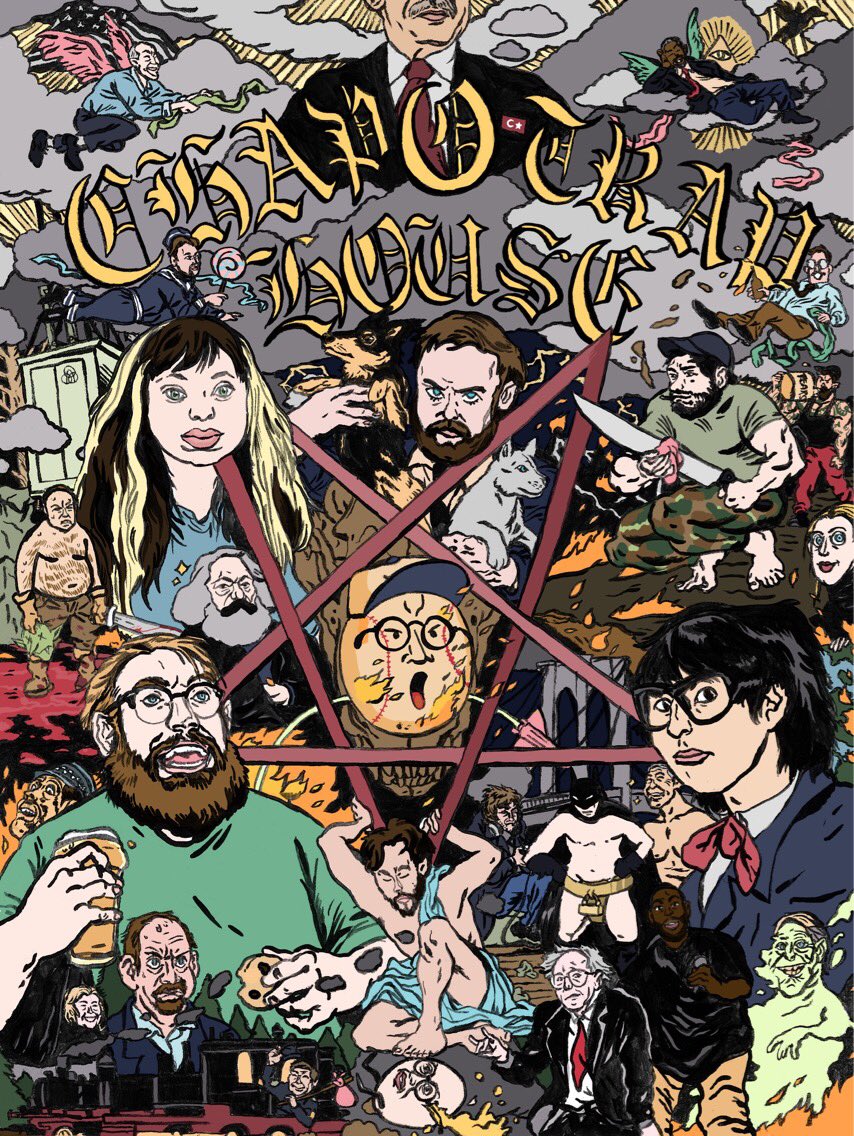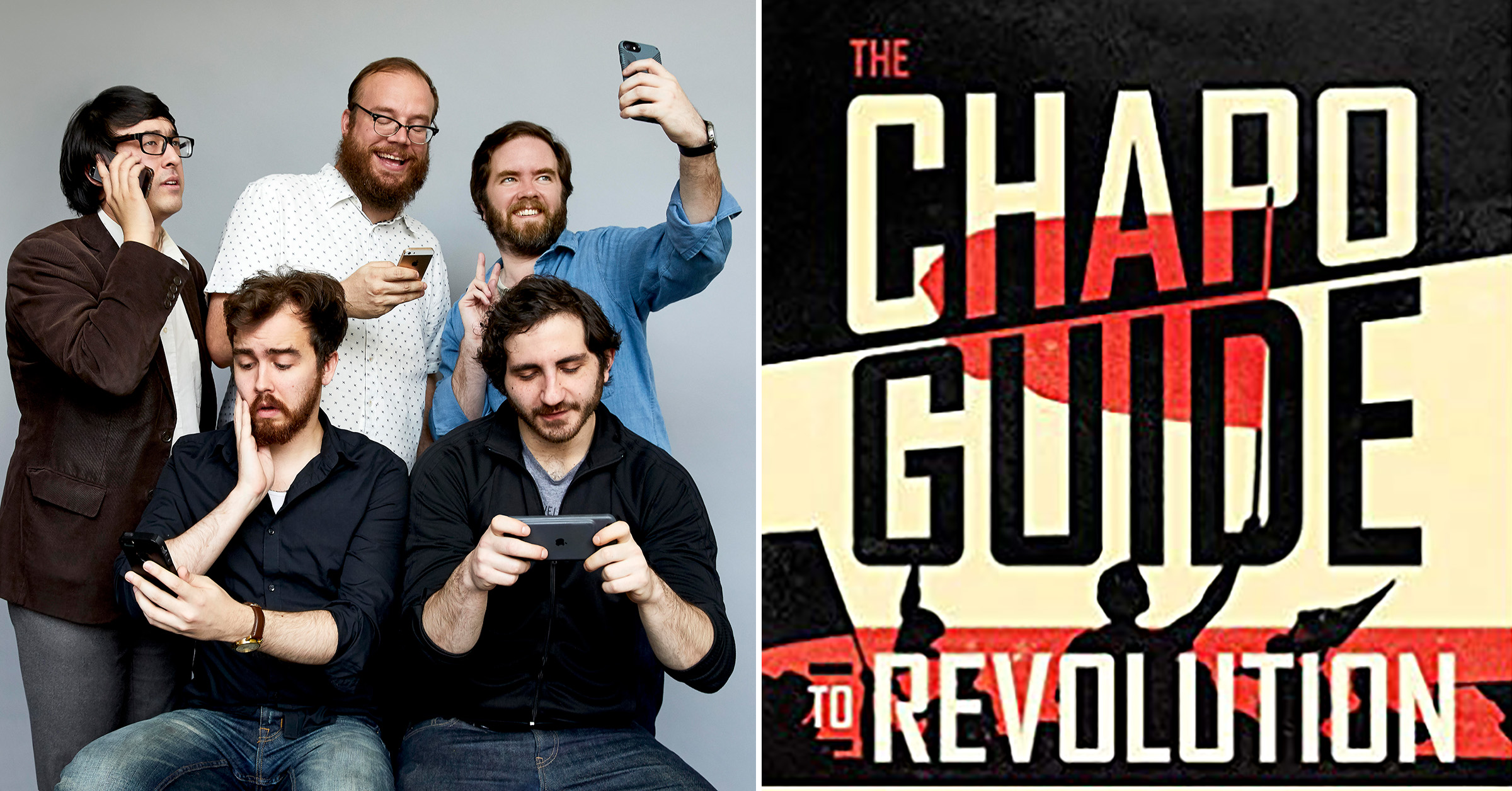Tuesday, November 6, 2018
Chapo Guide to Revolution
I have a theory about the popularity of podcasts. So much of our lives revolve around work; getting to work, spending our days in an office doing data-driven tasks, driving home from work, spending the evening in a depressing state of exhaustion. This limits our options for entertainment, whatever we consume has to be hands-free so we can drive or type (which eliminates books or video games) and it can't require our visual attention because we need to, at least appear to be, focused on work (eliminating television or movies).
You could listen to audiobooks, but a lot of times these can be dense and sometimes you miss essential sections as your focus drifts in and out of your tasks. Music might seem like an obvious choice, but to me, music is more like coffee; it might make it easier to focus on a task and even make that task more enjoyable, it's not the same as entertainment.
Podcasts are handsfree, don't require any visual attention, easy to drift in and out of, extremely accessible, and are very entertaining. This is less of an endorsement of podcasts than it is a realization of the unfortunate reality that working lives are increasingly unfulfilling. We spend most of it making money for other people and entertain ourselves by listening to stories and interviews with people leading far more interesting lives.
This is cynical thinking, but then again my favorite podcast encourages this level of awareness about the mundane. Chapo Trap House is a Brooklyn based podcast that spins comedy, leftist politics, and obscure cultural references into what could be the most relevant conversation being had*. What sets them apart? They're political without managing to suffer from partisan inconsistencies, their humor punches almost exclusively up without the suggested gentleness of doing so, and their references have a range from the academic or literary to 90s drudgery.
Chapo Trap House, with their fresh perspectives and timely commentary on the material condition of people's lives, helped drive a lot of my worldview leftward. When I saw they had a book coming out I was excited. Since a lot of my interaction with their podcast has been while at work, I thought a book would allow me to engage more thoroughly with their ideas.
The Chapo Guide to Revolution reads like a lot of leftist/Marxist books I've been reading lately. It takes aim at the shortcomings of liberalism and the garishness of conservativism. The key difference is that the Chapo Guide to Revolution is funny and way more accessible. It's written for the terminally online person, the disaffected college student at a state school, and workers entombed in their cubicles. Chapo Traphouse is reaching out to groups of middle Americans who feel ignored by a system who views them as nothing but a block of buying power to market to. What's more important is that they do so effectively.
Academics, critics, or theory jockeys could make a field day out of their complaints. Many have already pointed out that the ideas are oversimplified, the history is onesided, and many concepts are assumed true. None of this fucking matters though, because the Chapo Guide to Revolution isn't speaking to critics or academics or theory jockeys, nor is it speaking their language. Those of us in the crushed middle class have been saddled with student debt and fed lies about buying products or apps that will make our lives better are currently looking to fill a void, even if we don't know it. Alt-right voices are extremely good at filling this void because they're speaking to it in a way that the status quo defending voices cannot by definition. We need more left-wing voices that can do the same thing.



No comments:
Post a Comment